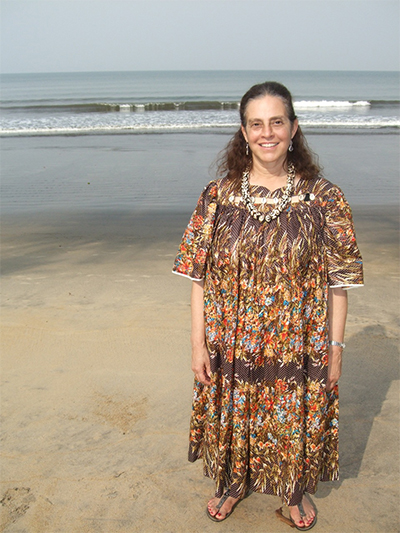“Why do you call yourself African-American?”
That’s a question that’s followed me most of my life.
“My mother’s black and so is my father and so are all four of my grandparents,” I’d state, standing up for myself in the playground.
For those who can’t get past my white skin, that simply isn’t enough.
The fact is, that explanation has never been enough for me either. Even as a child, I sensed its incompleteness.
Since the topic was taboo in my family, I had to read about “slavery.” Without knowing the names of the “slaves” in my family, I felt tremendous sorrow for them. I also suffered from the condition of not-knowing. It was as if a part of my self had been cut off and purposefully discarded. I never stopped asking questions, collecting pieces of the puzzle through research and family stories. In an attempt to reimagine my African ancestors, I created fictional families of enslaved and free people of color. I visited distant relatives and ruthlessly picked their memories and borrowed their photographs. By the year 2004 I had the names of several enslaved black ancestors along with the locations of where they’d lived, their occupations after slavery and the names of their children. But the pot of gold at the end of the rainbow was an actual location in Africa. When DNA testing became available, I jumped at the chance to identify a tribal origin. I had to purchase four different tests, engaging my brother and two of my cousins in the quest. My own mitochondria led to Ireland, something not surprising since I’d learned from an elderly aunt that my third great-grandmother had been an Irish indentured servant who partnered with a free man of color. My brother’s test took us to back to Portugal through my father’s line; a real shock for us. When my two cousins’ tests came back with genetic proof that would link my family to locations in Africa, I was elated and oddly relieved. At last I had the beginning of my story. In 2010 and again in 2011, I went to Cameroon one of my family’s African locations of origin where I met officials of the Tikar, Hausa and Fulani tribes. Over two hundred ago, a girl from one of those tribes was abducted and sold into slavery. Six generations later, as I walked a jungle trail in Cameroon, that girl was on my mind. I might never know her name but I know now where she came from, where I came from. In 2012 this is my Black History.
By the year 2004 I had the names of several enslaved black ancestors along with the locations of where they’d lived, their occupations after slavery and the names of their children. But the pot of gold at the end of the rainbow was an actual location in Africa. When DNA testing became available, I jumped at the chance to identify a tribal origin. I had to purchase four different tests, engaging my brother and two of my cousins in the quest. My own mitochondria led to Ireland, something not surprising since I’d learned from an elderly aunt that my third great-grandmother had been an Irish indentured servant who partnered with a free man of color. My brother’s test took us to back to Portugal through my father’s line; a real shock for us. When my two cousins’ tests came back with genetic proof that would link my family to locations in Africa, I was elated and oddly relieved. At last I had the beginning of my story. In 2010 and again in 2011, I went to Cameroon one of my family’s African locations of origin where I met officials of the Tikar, Hausa and Fulani tribes. Over two hundred ago, a girl from one of those tribes was abducted and sold into slavery. Six generations later, as I walked a jungle trail in Cameroon, that girl was on my mind. I might never know her name but I know now where she came from, where I came from. In 2012 this is my Black History.
My Black History
She came from Cameroon
No Comments »